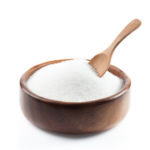There has never been a better time to live by the adage ‘Let food be thy medicine’. The Coronavirus has brought health and immunity to the forefront of all our minds. Yet as the weeks of social restrictions related to COVID 19 roll-on, making healthy food choices (that are low in sugar) aren’t always easy. On the other hand, making poor food choices can drain both our physical and mental health. Success right now is to strike a healthy balance. In this article we take a closer look at the impact of high sugar consumption on your immunity. Is it a time to cut ourselves some slack, or should we be reigning in the sugary snacks?
Empty calories
The first thing to keep in mind is that sugar is nothing more than empty calories – it gives you no nutritional value at all. Worse than that, because sugar is devoid of nutrients, your body must use other nutrients stored in your system in order to digest the sugar. So, not only are you getting absolutely no vital vitamins and minerals from the sugar, but your body is also losing valuable nutrients just by eating it. Hence sugar causes a double whammy on the nutritional front and can create nutritional deficiencies. This is not helpful when you’re trying to boost your immune system.
Role in immunity
It is widely believed that sugar consumption can play a direct role in immunity by hampering the activity of neutrophils. Neutrophils are the most abundant small white blood cells, or leukocytes in the body. They act as the first line of defence in our immune system, circulating in the bloodstream, defending us against invaders. So overdoing the sugary foods could impair your immune system’s ability to deal with bacterial infections. Whilst on the flipside, time-restricted eating such as a 12 or 14hr hour fast overnight may even prime immunity.
There is no conclusive evidence however that increased sugar consumption makes you more susceptible to colds or cases of flu. Therefore it would be foolish to oversimplify the complexity of the immune system. Nevertheless, reducing sugar consumption is still a good idea when we consider its overall impact on our health.
So how much is too much?
So how much is too much? In the body, we each have five litres of blood. There should only be 4 grams, (less than a teaspoon) of sugar in that blood. The World Health Organisation recommends reducing your sugar intake to less than 10% of your total energy. This equates to about 5 – 10 tsp per day. So, a teaspoon of sugar in your coffee or a biscuit at morning tea doubles the sugar in the blood, with a potentially serious negative effect on the immune system. Data coming out of Wuhan shows that patients with blood glucose less than 5.4mmol/l were unlikely to develop Acute Respiratory Distress Syndrome and need ventilation, compared with those with blood glucose above 7.4 mmol/l.
Top tips
Some top tips to support your immunity would be to limit sugary foods. Choose whole grains rather than refined carbohydrates. Always read your food labels and choose foods with less than 10g or sugar per 100 g. Throughout the day avoid grazing and instead eat regular meals that contain at least 25% lean protein. If you wish to experience the benefits of fasting aim to limit your eating between the hours of 9am to 7pm.
Other factors
What we do know is that it isn’t only sugar that suppresses the immune system. It’s also stress, nutrient deficiencies, too little or too much exercise or lack of sleep. The factors that contribute toward chronic inflammation, weight gain, excessive cortisol, and metabolic syndrome are also most likely to compromise the immune system. Sugar plays an important role, but it’s not the only player.
Written by Sorcha Molloy – Glenville Nutrition, Galway
If you would like nutritional support during these challenging times, call us on 01 2655977 or book online now.


